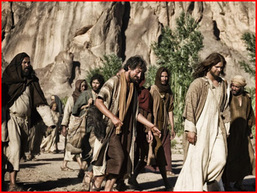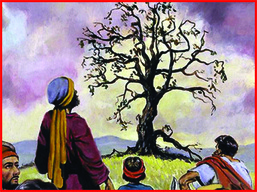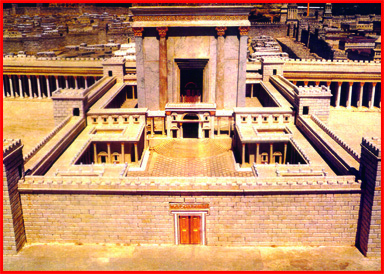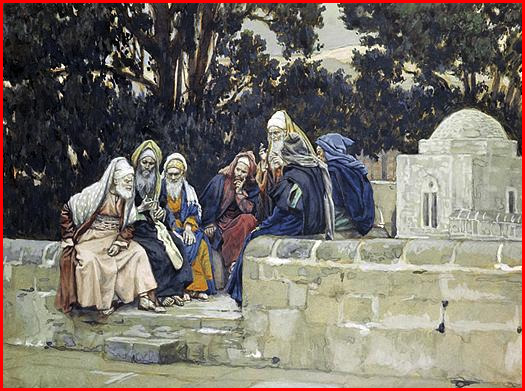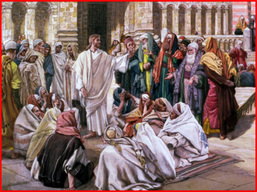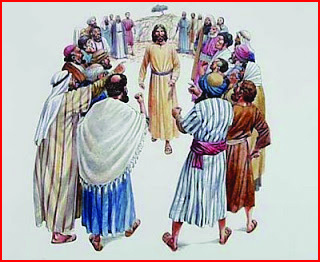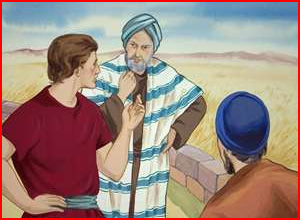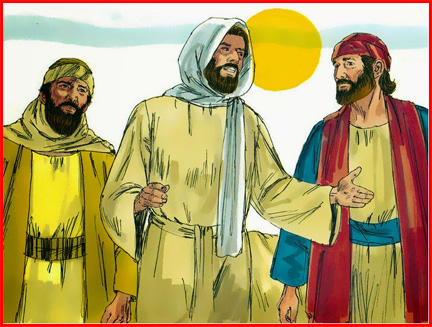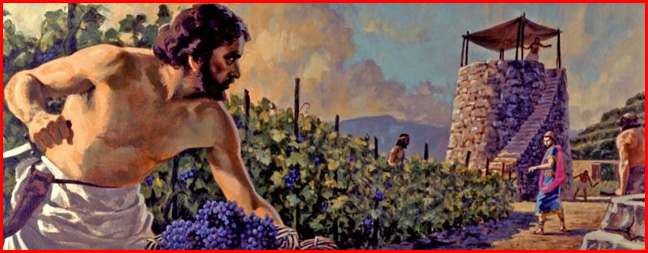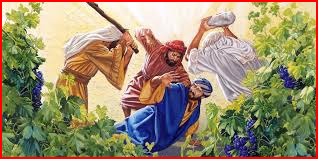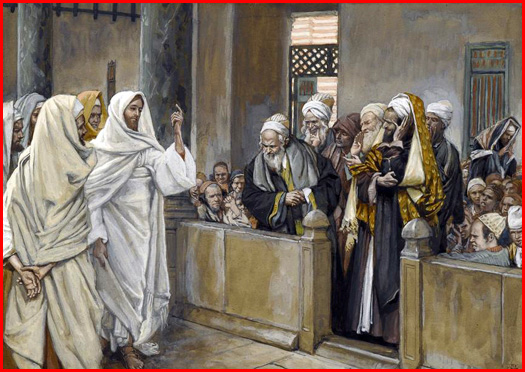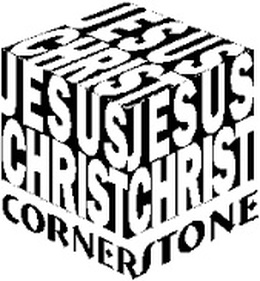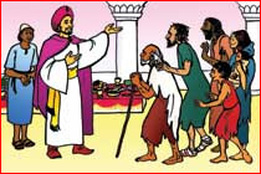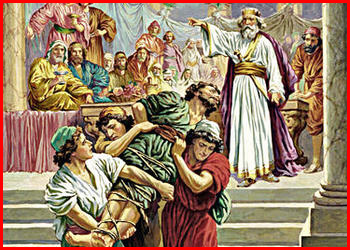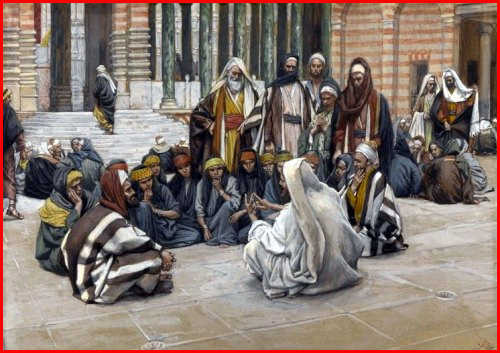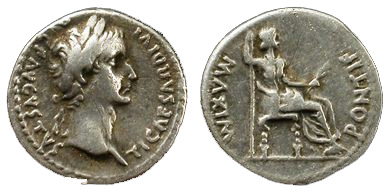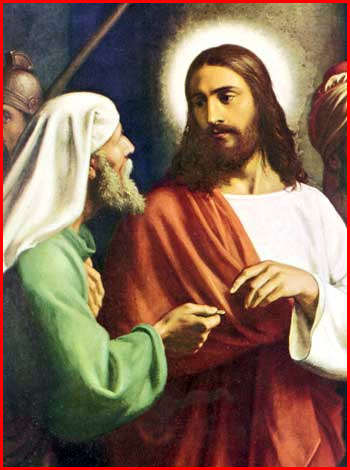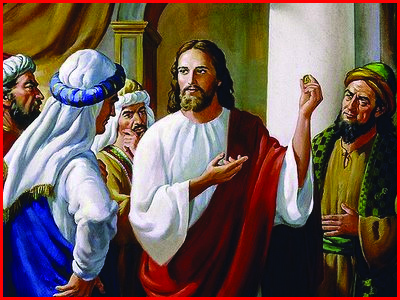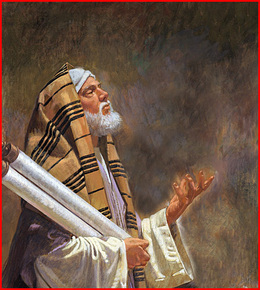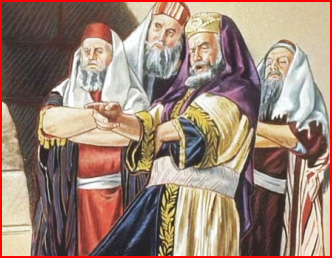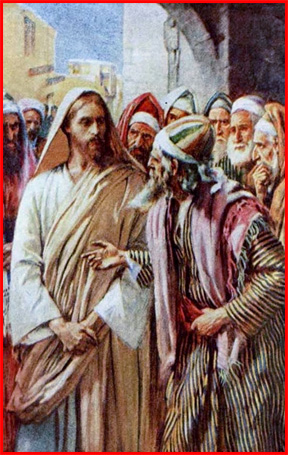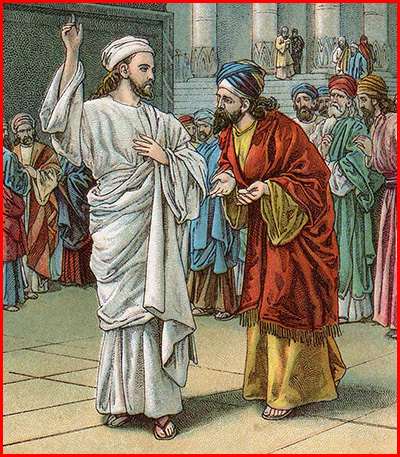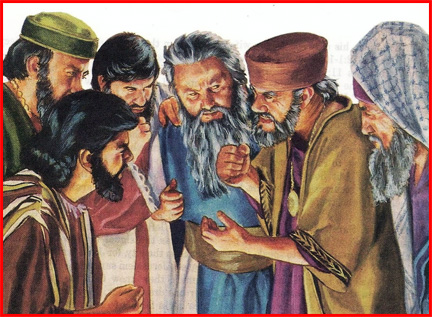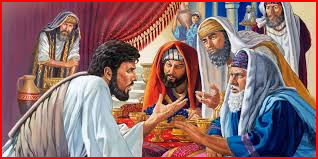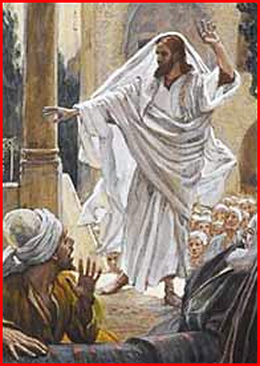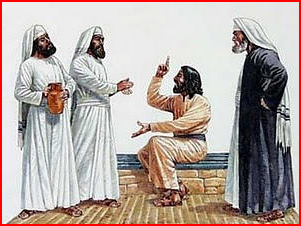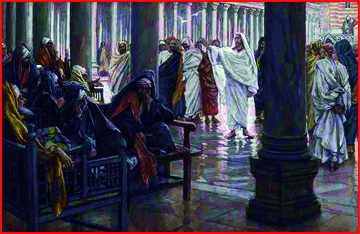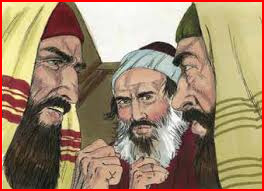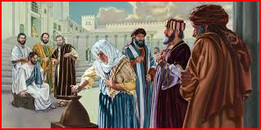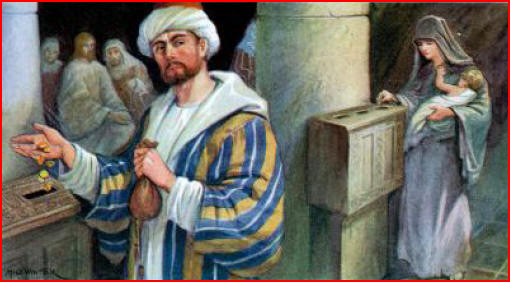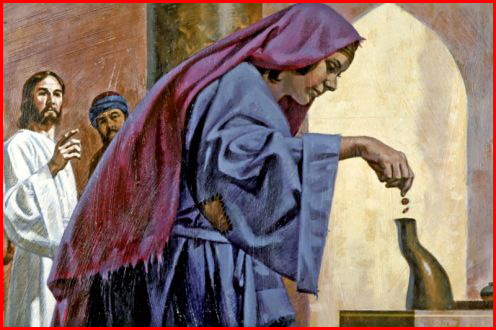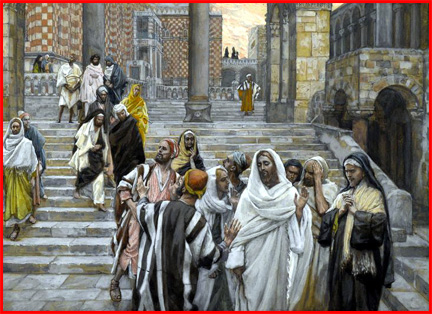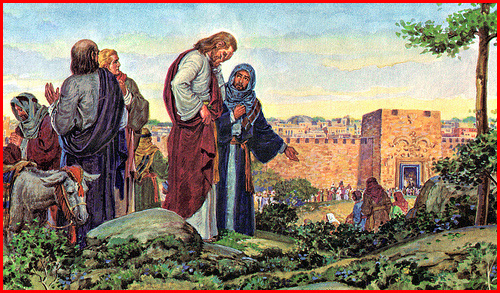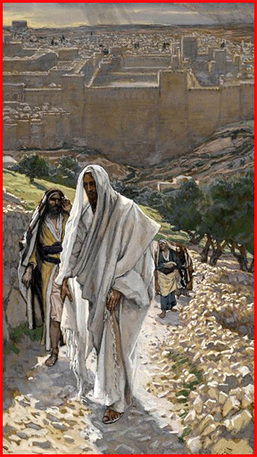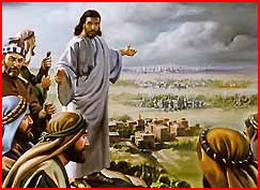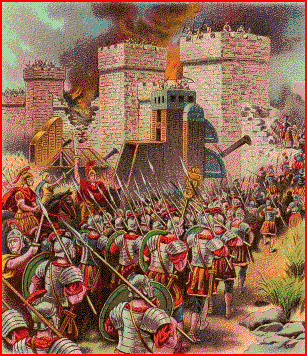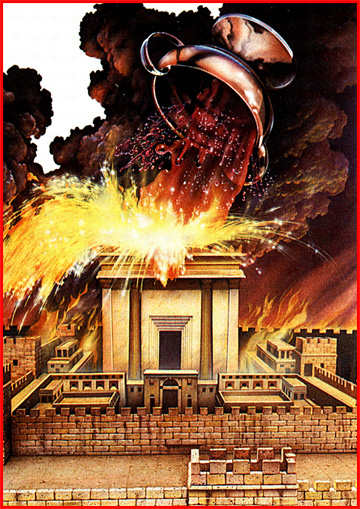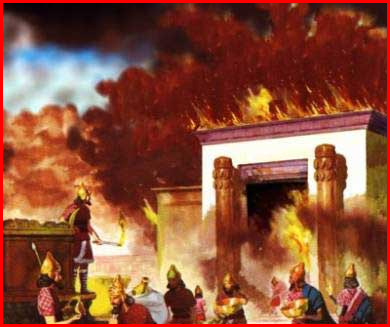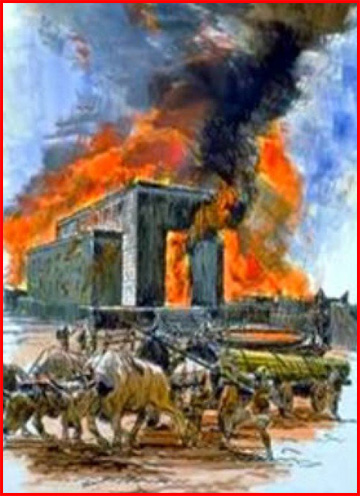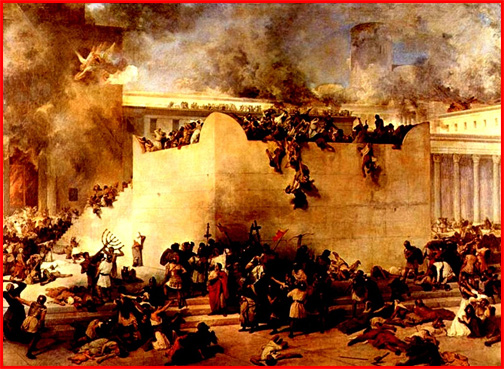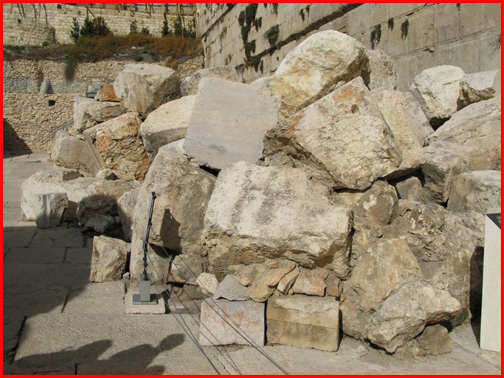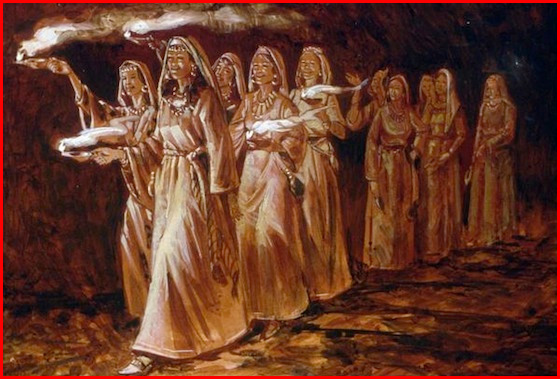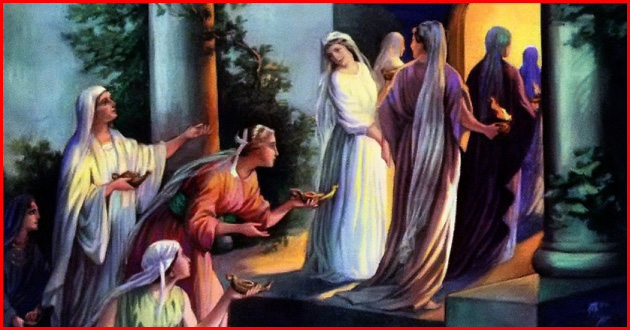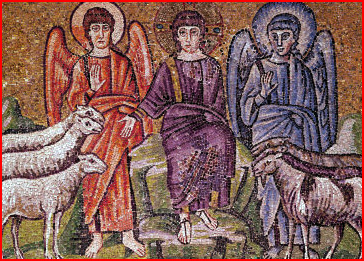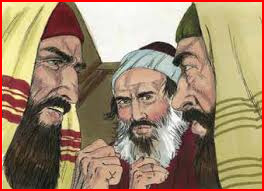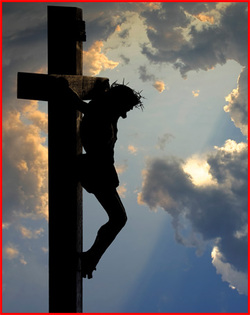| Devotion to Our Lady |
|
- Homepage
-
Daily Thoughts
- 2023 October Daily Thoughts
- Daily Thoughts Lent 2020
- Daily Thoughts for Advent 2019
- Daily Thoughts for October 2019
- Daily Thoughts for September 2019
- Daily Thoughts for August 2019
- Daily Thoughts for July
- Daily Thoughts for June
- Daily Thoughts for Easter 2019
- Daily Thoughts for Lent 2019
- Daily Thoughts for Christmas
- Daily Thoughts Easter 2022
- Sacred Heart
- Holy Ghost
-
Spiritual Life
- Holy Mass Explained
- First Friday Devotions
- First Saturday Devotions
- The Mercy of God
- Vocations
- The Path Everyone Must Walk >
- Gift of Failure
- Halloween or Hell-O-Ween?
- Ignatian Spiritual Exercises >
- Meditation is Soul-Saving
- Spiritual Communion
- Miraculous Medal
- Enrollment in Miraculous Medal
- St. Benedict Medal
- Holy Water
- Advice on Prayer
- Your Daily Mary
-
Prayers
- September Devotions
- Seven Sorrows of Our Lady
-
Novenas
>
- NV-Help of Christians
- NV-Nativity of Our Lady
- NV-Seven Sorrows
- NV- Sorrowful Heart
- NV-Pope St Pius X
- NV-La Salette
- NV-St Michael Archangel
- NV-Immaculate Heart
- NV-Assumption
- NV-Novena for Fathers
- NV-Novena for Your Mother
- NV-St Raphael Archangel
- NV-Souls in Purgatory
- NV-All Saints Day
- NV-Christ the King
- NV-Divine Motherhood
- NV-Guardian Angels
- NV-Rosary
- NV-Mirac Med
- NV- Imm Conc
- NV - Guadalupe
- NV - Nativity of Jesus
- NV-Epiphany
- NV-OL Good Success
- NV-Lourdes
- NV-St Patrick
- NV-St Joseph
- NV-Annunciation
- NV-St Louis de Montfort
- NV-OL Good Counsel
- NV-Last Supper
- NV-Passion
- NV-Pentecost
- NV-Ascension
- NV-Sacred Heart
- NV-Sacred Heart & Perpetual Help
- NV-Corpus Christi
- NV-OL of Perpetual Help
- NV-Queenship BVM
- NV-OL of Mount Carmel
- NV-St Mary Magdalen
- NV- Im Hrt
- August Devotions to IHM
- Immaculate Heart of Mary
- Litany of Dependence
- Prayers to St Mary Magdalen
- Prayers in Times of Sickness Disease & Danger
- Holy Souls in Purgatory
- Meditations on the Litany of Our Lady
- Special Feast Days
- Prayers to Mary (Mon-Sun)
- Litanies to Our Lady >
- Various & Special Needs
- Our Lady of the Rosary
- Our Lady of Mt. Carmel
- Our Lady of Perpetual Help
- Our Lady of Guadalupe
- Other titles of Our Lady
-
Rosary
- Downloads
- Consecration
- Easter Season
-
Holy Week
- Last Seven Words of Jesus >
- Characters of Passion >
- The Last Days of Christ
- Before Palm Sunday
- Palm Sunday
- Monday in Holy Week
- Tuesday in Holy Week
- Wednesday in Holy Week
- Holy Thursday (Last Supper)
- Holy Thursday (Agony & Arrest)
- Night Vigil with Christ
- Good Friday (Pilate & Herod)
- Good Friday (Way of Cross & Crucifixion)
- Saturday in Holy Week
-
Lent
- Ideas for Lent
- Daily Lenten Planner
- Daily Lenten Liturgy
- From Cold to Hot
- Lent with Aquinas
- Lent with Dom Gueranger
- Virtues for Lent
- History of Penance
- How Expensive is Sin?
- Confession of Sins
- Letter to Friends of the Cross
- Sermons for Lent
- Stations of the Cross >
- Lenten Prayers
- 7 Penitential Psalms
- Lenten Psalms SUN
- Lenten Psalms MON
- Lenten Psalms TUE
- Lenten Psalms WED
- Lenten Psalms THU
- Lenten Psalms FRI
- Lenten Psalms SAT
- Lenten Laughs
- Septuagesima
-
Christmas
- Epiphany Explained
- Suggestions for Christmas
- Food For Thought
- Christmas with Aquinas
- Christmas with Dom Gueranger
- Christmas Prayers
- Candles & Candlemas
- Christmas Sermons
- Christmas Prayers SUN
- Christmas Prayers MON
- Christmas Prayers TUE
- Christmas Prayers WED
- Christmas Prayers THU
- Christmas Prayers FRI
- Christmas Prayers SAT
- Twelve Days of Christmas >
-
Advent Journey
- Purgatory
- Christ the King
- Legion of Mary
- Scapular
-
Saints
-
Martyrs for the Faith
>
- Your Daily Martyr >
- All 365 Days of Martyrs
- Cristeros
- St Valentine & Valentine's Day
- Martyrs--Thomas Becket
- Martyrs--John the Apostle
- Holy Machabees
- Age of Martyrdom
- Carmelites of Compiegne
- Martyrs--Peter & Paul
- Martyrs--John the Baptist
- Martyrs--Andrew
- Martyrs--James the Great
- Martyrs--North American
- Martyrs--Seven Holy Sleepers
- Martyrs--Afra
- School of Martyrdom
- Martyrs--Christina
- Desert Saints >
- Saints for Sinners >
- Saints of Mary >
- History of All Saints Day
-
Martyrs for the Faith
>
- Precious Blood
- Synod 2023
-
Catechism
- Catechism Lesson 1
- Catechism Lesson 2
- Catechism Lesson 3
- Catechism Lesson 4
- Catechism Lesson 5
- Catechism Lesson 6
- Catechism Lesson 7
- Catechism Lesson 8
- Catechism Lesson 9
- Catechism Lesson 10
- Catechism Lesson 11
- Catechism Lesson 12
- Catechism Lesson 13
- Catechism Lesson 14
- Catechism Lesson 15
- Catechism Lesson 16
- Catechism Lesson 17
- Catechism Lesson 18
- Catechism Lesson 19
- Catechism Lesson 20
- Catechism Lesson 21
- Catechism Lesson 22
- Bible Study
-
Calendar
- Miracles
- Apparitions
- Shrines
- Prophecies
- Angels Homepage
- Hell
-
Church Crisis
- Conspiracy Theories
- Amazon Synod 2019 >
- Liberalism & Modernism
- Modernism--Encyclical Pascendi
- Modernism & Children
- Modernism--Documents
- The Francis Pages
- Church Enemies on Francis
- Francis Quotes
- Amoris Laetitia Critique
- Danger of Ignorance (Pius X)
- Restore all In Christ (Pius X)
- Catholic Action (Pius X)
- Another TITANIC Disaster?
- The "Errors of Russia"
- CRISIS PRAYERS
- Election Novena 2024
- The Anger Room
- War Zone
- Life of Mary
- Spiritual Gym
- Stupidity
- Coronavirus and Catholicism
- History & Facts
- Books
- Catholic Family
- Children
- Daily Quiz
-
Novena Church & Pope
- Day 01 Church-Pope Novena
- Day 02 Church-Pope Novena
- Day 03 Church-Pope Novena
- Day 04 Church-Pope Novena
- Day 05 Church-Pope Novena
- Day 06 Church-Pope Novena
- Day 07 Church-Pope Novena
- Day 08 Church-Pope Novena
- Day 09 Church-Pope Novena
- Day 10 Church-Pope Novena
- Day 11 Church-Pope Novena
- Day 12 Church-Pope Novena
- Day 13 Church-Pope Novena
- Day 14 Church-Pope Novena
- Day 15 Church-Pope Novena
- Day 16 Church-Pope Novena
- Day 17 Church-Pope Novena
- Day 18 Church-Pope Novena
- Day 19 Church-Pope Novena
- Day 20 Church-Pope Novena
- Day 21 Church-Pope Novena
- Day 22 Church-Pope Novena
- Day 23 Church-Pope Novena
- Day 24 Church-Pope Novena
- Day 25 Church-Pope Novena
- Day 26 Church-Pope Novena
- Day 27 Church-Pope Novena
- Day 28 Church-Pope Novena
- Day 29 Church-Pope Novena
- Day 30 Church-Pope Novena
- Day 31 Church-Pope Novena
- Day 32 Church-Pope Novena
- Day 33 Church-Pope Novena
- Day 34 Church-Pope Novena
- Day 35 Church-Pope Novena
- Day 36 Church-Pope Novena
- Day 37 Church-Pope Novena
- Day 38 Church-Pope Novena
- Day 39 Church-Pope Novena
- Day 40 Church-Pope Novena
- Day 41 Church-Pope Novena
- Day 42 Church-Pope Novena
- Day 43 Church-Pope Novena
- Day 44 Church-Pope Novena
- Day 45 Church-Pope Novena
- Day 46 Church-Pope Novena
- Day 47 Church-Pope Novena
- Day 48 Church-Pope Novena
- Day 49 Church-Pope Novena
- Day 50 Church-Pope Novena
- Day 51 Church-Pope Novena
- Day 52 Church-Pope Novena
- Day 53 Church-Pope Novena
- Day 54 Church-Pope Novena
- Penance Novena
- Daily WeAtheR Forecast
The Greatest and Most Important Week in the Church's Liturgical Year
CLICK ON ANY HOLY WEEK LINK BELOW
Also lots of LENTEN & HOLY WEEK DOWNLOADS on the downloads page (click here)
LITURGICAL PRAYERS FOR EACH DAY OF THE WEEK DURING LENT
| Sundays of Lent | Mondays of Lent | Tuesdays of Lent | Wednesdays of Lent | Thursdays of Lent | Fridays of Lent | Saturdays of Lent |
HOLY WEEK PAGES
| Daily Thoughts | Holy Week Main Page | Before Palm Sunday | Palm Sunday | Last Days of Christ |
| Holy Thursday Last Supper Novena | Good Friday Passion Novena |
| Monday of Holy Week | Tuesday of Holy Week | Wednesday of Holy Week | Holy Thursday (Last Supper) | Holy Thursday (Agony & Arrest) |
| Night Vigil With Christ | Good Friday (Pilate & Herod) | Good Friday (Way of Cross & Crucifixion) | Holy Saturday |
THE CHIEF CHARACTERS OF THE PASSION
| Characters of the Passion Mainpage | The Sanhedrin | Pharisees | Scribes | Saducees | Jewish Crowd | Roman Rulers |
| Judas | Annas & Caiphas | Pontius Pilate | Herod | Barabbas | Dismas the Good Thief | St. Peter | St. John | Mary Magdalen |
THE FOURTEEN STATIONS OF THE CROSS
| Introduction to the Stations of the Cross | Short Version of the Stations of the Cross (all 14 on one page) | 1st Station | 2nd Station | 3rd Station |
| 4th Station | 5th Station | 6th Station | 7th Station | 8th Station | 9th Station | 10th Station | 11th Station | 12th Station | 13th Station | 14th Station |
THE LAST SEVEN WORDS OF JESUS FROM THE CROSS
| Seven Last Words on the Cross (Introduction) | The 1st Word on the Cross | The 2nd Word on the Cross | The 3rd Word on the Cross |
| The 4th Word on the Cross | The 5th Word on the Cross | The 6th Word on the Cross | The 7th Word on the Cross |
PRAYERS AND DEVOTIONS TO THE SEVEN SORROWS OF OUR LADY
| Seven Sorrows Meditations | Short Prayers & Short Seven Sorrows Rosary | Longer Seven Sorrows Rosary |
| 1st Sorrow of Our Lady | 2nd Sorrow of Our Lady | 3rd Sorrow of Our Lady | 4th Sorrow of Our Lady |
| 5th Sorrow of Our Lady | 6th Sorrow of Our Lady | 7th Sorrow of Our Lady |
| Novena #1 to the Sorrowful Heart of Mary | Novena #2 to the Sorrowful Heart of Mary |
LENTEN PAGES
| ASH WEDNESDAY COUNTDOWN | LENT (MAIN PAGE) | DAILY THOUGHTS | DAILY LENTEN LITURGY | DAILY LENTEN PLANNER |
| LENTEN PRAYERS | THE 7 PENITENTIAL PSALMS | IDEAS FOR PENANCE | LENT WITH AQUINAS | LENT WITH DOM GUERANGER |
| HISTORY OF PENANCE | PENANCES OF THE SAINTS | HOW EXPENSIVE IS SIN? | CONFESSION OF SINS | ARE FEW SOULS SAVED? |
| VIRTUES FOR LENT | FROM COLD TO HOT | LENTEN LAUGHS | SERMONS FOR LENT | LETTER TO FRIENDS OF THE CROSS |
| STATIONS OF THE CROSS (INDIVIDUALLY) | ALL 14 STATIONS OF THE CROSS |
| THE LAST DAYS OF CHRIST | SPECIAL HOLY WEEK PAGES |
CLICK ON ANY HOLY WEEK LINK BELOW
Also lots of LENTEN & HOLY WEEK DOWNLOADS on the downloads page (click here)
LITURGICAL PRAYERS FOR EACH DAY OF THE WEEK DURING LENT
| Sundays of Lent | Mondays of Lent | Tuesdays of Lent | Wednesdays of Lent | Thursdays of Lent | Fridays of Lent | Saturdays of Lent |
HOLY WEEK PAGES
| Daily Thoughts | Holy Week Main Page | Before Palm Sunday | Palm Sunday | Last Days of Christ |
| Holy Thursday Last Supper Novena | Good Friday Passion Novena |
| Monday of Holy Week | Tuesday of Holy Week | Wednesday of Holy Week | Holy Thursday (Last Supper) | Holy Thursday (Agony & Arrest) |
| Night Vigil With Christ | Good Friday (Pilate & Herod) | Good Friday (Way of Cross & Crucifixion) | Holy Saturday |
THE CHIEF CHARACTERS OF THE PASSION
| Characters of the Passion Mainpage | The Sanhedrin | Pharisees | Scribes | Saducees | Jewish Crowd | Roman Rulers |
| Judas | Annas & Caiphas | Pontius Pilate | Herod | Barabbas | Dismas the Good Thief | St. Peter | St. John | Mary Magdalen |
THE FOURTEEN STATIONS OF THE CROSS
| Introduction to the Stations of the Cross | Short Version of the Stations of the Cross (all 14 on one page) | 1st Station | 2nd Station | 3rd Station |
| 4th Station | 5th Station | 6th Station | 7th Station | 8th Station | 9th Station | 10th Station | 11th Station | 12th Station | 13th Station | 14th Station |
THE LAST SEVEN WORDS OF JESUS FROM THE CROSS
| Seven Last Words on the Cross (Introduction) | The 1st Word on the Cross | The 2nd Word on the Cross | The 3rd Word on the Cross |
| The 4th Word on the Cross | The 5th Word on the Cross | The 6th Word on the Cross | The 7th Word on the Cross |
PRAYERS AND DEVOTIONS TO THE SEVEN SORROWS OF OUR LADY
| Seven Sorrows Meditations | Short Prayers & Short Seven Sorrows Rosary | Longer Seven Sorrows Rosary |
| 1st Sorrow of Our Lady | 2nd Sorrow of Our Lady | 3rd Sorrow of Our Lady | 4th Sorrow of Our Lady |
| 5th Sorrow of Our Lady | 6th Sorrow of Our Lady | 7th Sorrow of Our Lady |
| Novena #1 to the Sorrowful Heart of Mary | Novena #2 to the Sorrowful Heart of Mary |
LENTEN PAGES
| ASH WEDNESDAY COUNTDOWN | LENT (MAIN PAGE) | DAILY THOUGHTS | DAILY LENTEN LITURGY | DAILY LENTEN PLANNER |
| LENTEN PRAYERS | THE 7 PENITENTIAL PSALMS | IDEAS FOR PENANCE | LENT WITH AQUINAS | LENT WITH DOM GUERANGER |
| HISTORY OF PENANCE | PENANCES OF THE SAINTS | HOW EXPENSIVE IS SIN? | CONFESSION OF SINS | ARE FEW SOULS SAVED? |
| VIRTUES FOR LENT | FROM COLD TO HOT | LENTEN LAUGHS | SERMONS FOR LENT | LETTER TO FRIENDS OF THE CROSS |
| STATIONS OF THE CROSS (INDIVIDUALLY) | ALL 14 STATIONS OF THE CROSS |
| THE LAST DAYS OF CHRIST | SPECIAL HOLY WEEK PAGES |
THE EVENTS OF TUESDAY IN HOLY WEEK
VENERABLE MARY OF AGREDA
The Mystical City of God
The Mystical City of God
|
All the mysteries connected with the triumph of our Saviour were great and admirable; but not the least wonderful were the hidden effects of the divine power on the hellish fiends, when, at the entrance of Jesus into Jerusalem, they were cast into the infernal abysses.
Two entire days, from Sunday until Tuesday of that week, the demons lay shattered by the right hand of the Almighty, manifesting their furious torment to the damned souls of those hellish caverns by their horrid and confused howls of despair. The whole infernal dominion was filled on that occasion with unwonted confusion and pain. The prince of this darkness, Lucifer, more confounded than all the rest, called to his presence all the devilish hosts, and stationing himself on an eminence, spoke to them as their chief. “It cannot be otherwise than that this Man, who thus persecutes us and destroys our influence, and who thus crushes my power, is more than a Prophet. For Moses, Elias and Eliseus, and others of our enemies among the ancients, never vanquished us so completely, although they performed miracles; nor did they ever succeed in hiding from me so many of their doings as this One; for especially of His interior works I can obtain little information. "How can a mere man perform such works and manifest such supreme power over all creation, as are publicly ascribed to Him? Without any change or inflation of mind He received the praise and glorification for these works from the mouths of men. In celebrating this triumphal entry into Jerusalem He has shown new power over us and over all the world; for even now I find my strength for visiting destruction upon Him and blotting out His name from the land of the living vanishing away (Jeremias 11:19). “In His present triumph, not only His own friends have extolled Him and proclaimed Him as blessed, but even many of those who were subject to me have done the same and have called Him the Messias promised in their law; He has drawn them all to venerate and adore Him. This certainly seems to exceed mere human power; and if He is no more than man, there never was one who partook of the divine power in such a degree, and He is doing and will do us great damage. "Since the time when we were cast from Heaven, we have never experienced such ruinous defeat, nor have I ever encountered such overwhelming power before this man came into the world. If He should be the incarnate Word (as we suspect) there is necessity for thorough deliberation; for if we permit Him to live, He will, by His example and teaching, draw after Him all mankind. In my hate, I have several times sought to bring about His death; but without success. In His own country, when I instigated His countrymen to cast Him from the precipice, He contemptuously took His way through the midst of those who were to execute the sentence (Luke 4:30). On another occasion He simply made Himself invisible to the Pharisees, whom I had incited to stone Him.” |
“But now, with the help of His disciple and our friend Judas, matters seem to promise better success. I have so wrought upon the mind of Judas, that he is willing to sell and betray his Master to the Pharisees, whom I have likewise incited to furious envy. They are anxious to inflict upon Him a most cruel death, and will no doubt do so. They are only waiting for an occasion, which I will try my utmost to procure for them; for Judas and the priests and the Pharisees are ready to do anything I suggest.
"Nevertheless I see in this a great danger, which demands our closest attention; for if this Man is the Messias expected by His people, He will offer His Death and all His sufferings for the Redemption of men and thereby satisfy for their misdeeds and gain infinite merits for all of them. He will open the heavens and pave the way for mortals to the enjoyment of those rewards of which God has deprived us. "Such an issue, if we do not prevent it, shall indeed be a terrible torment for us. Moreover, this Man will leave to the world a new example of patience in suffering and show its merit to all the rest of mankind; for He is most meek and humble of heart, and was never seen impatient or excited. These same virtues He will teach all men, which even to think of is an abomination to me, since these are the virtues most offensive to me and to all those who follow my guidance or are imbued with my sentiments. Hence it is necessary to unite on a course of action in regard to persecuting this strange Man, Christ, and that you let me know what is your understanding of this matter.” Then the princes of darkness, lashing themselves to incredible fury against our Redeemer held long consultations concerning this enterprise. They deeply deplored their having been probably led into great error, by plotting His death with so much cunning and malice. They concluded henceforth to make use of redoubled astuteness and cunning to repair the damage done and hinder His death, for they were, by this time, confirmed in their suspicion, that He was the Messias, although they did not reach altogether definite conclusions in this matter. This suspicion was, for Lucifer, the cause of so much anxiety and torment, that he approved of the new determination to hinder the death of the Savior and he closed the meeting by saying: “Believe me, friends, that if this Man is at the same time true God, He will, by His Passion and Death, save all men; our dominion will be overthrown and mortals will be raised to new happiness and dominion over us. We were greatly mistaken in seeking His death. Let us immediately proceed to repair our damage.” HERE ENDS THE EXTRACT FROM THE MYSTICAL CITY OF GOD |
|
Astonishment at the Fig Tree
The following morning, after spending this night, like the preceding one, without the city walls, Jesus returned for the last time to the Temple. By the roadside still stood the fig-tree He had condemned when passing that way yesterday, now no longer arrayed in glistening foliage, but parched and dry, blasted to the root. Peter was the first to notice it. “Master!” he said, “Look! The Fig-tree which you cursed has withered away.” The suddenness of this death so astonished the Apostles that they forgot the lesson which Jesus had drawn from the incident the day before, preoccupied as they were with the overwhelming effects of His slightest word. Accommodating Himself to their thoughts, the Lord now spoke to them of this attribute of Omnipotence, and declared that they might rightfully assume a like power. “Of a truth,” He said, “if you have faith and waver not you shall not only cause a fig-tree to wither away, but you shall say to this mountain, ‘Uproot thyself, and cast thyself into the sea!’ Immediately it shall be done.” (Matthew 21:21-22). The Apostles, who had been so amazed at the wonder He had worked, were even more astounded to hear Him say that they might do as much. In their surprise they stood staring at the Mount of Olives, whither the Lord had just pointed, their minds bewildered at the notion of stirring so huge a mass. Jesus pursued His thought further. “All things which you shall ask in prayer do but believe and you shall receive them.” Surely this was to give the soul a partnership in the Divine Power. But the faith, of which the Master is speaking here, is worthless without charity, and this truth He inculcated by adding that no prayer is granted which does not spring from love and forgiveness of injuries (Mark 11:25-26). “And when you would betake yourselves to prayer, whatever you may have against any one forgive it him, in order that your Father Who is in Heaven may also pardon you your offences. And if you do not forgive him neither will your Father Who is in Heaven pardon you your offences.” Final Day in the Temple After arriving at the Temple, Jesus once more began to preach and teach the crowds. (Matthew 21:23-27; Mark 11:27-33; Luke 20:1-8); but soon, along came the chief priests, the Scribes and Ancients of the people, that is, the representatives of the various groups in the Sanhedrin, so that all the forces of opposition were represented. For the time being, the two opposing forces were poised in the balance, but once the obstacle between the favor of the people was removed, the balance would be broken and the clash precipitated. His Enemies Await Meanwhile, conversing in this manner, they had passed under the gates of Jerusalem and ascended to the Temple. The crowds had not yet gathered in any great number. Walking under the galleries Jesus was beginning His instructions to such as He found already assembled there, when a deputation approached him (Mark11:27-33). It included, if not the whole Sanhedrin, at least representatives from its various divisions—Pontiffs, Scribes, and Ancients of the people. Filled with wrath, as they watched the Galilean’s triumphant reception during the last few days, they now came in person to question Him, making sure that their presence would overawe the multitude; and in fact the people at once fell to one side at their approach. Jesus' Authority Questioned “By what authority,” they demanded, “do You do these things? And who has given You this power” of instructing and exercising dominion in the Temple? “I also will propose a question to you,” said Jesus, “and, if you answer Me, I will tell you by what authority I do these things? From whom was the Baptism of John? From Heaven, or from men?” The Sanhedrin delegation was disconcerted; for, with a word, the Savior had reversed their respective roles, and obliged His judges to defend themselves. “Answer Me,” He repeated. But it was without avail. They saw only too well just what His question involved, for John had given testimony in the presence of all Judea that Jesus the Christ was still greater than he. “If we say: ‘It was from Heaven!’” they muttered among themselves, “He will answer us: ‘Why did you not believe him?’ And if we say: ‘It is from men,’ the people will stone us.” For all regarded John as a true Prophet, and they would incur great danger by even contradicting his words; so then, dreading any uprising of the multitude, the Sanhedrin’s emissaries were forced to acknowledge their defeat, saying: “We know nothing about it!” (Luke 20:3-7). They knew nothing about it! They, the masters of Israel, who had arrogated to themselves the right of expounding everything, of judging all things, of alone being able to distinguish the inspired Prophet from the seducer of the people—they could not tell what this man was, whose voice had startled Judea, and attracted to the Jordan, not only the ignorant multitude, but the Doctors of the Law and the great men of Jerusalem. They were so publicly put to confusion that Jesus was content to add: “No more will I tell you by what authority I do these things!” and He turned away from them. The duel was over, and it certainly had not been won by those who had chosen the weapons. Parable of the Two Sons targets the Sanhedrin (Priests and Pharisees) To cement and reinforce his victory and clarify further the relationship between his mission and that of the Baptist, Jesus delivers three Parables that are meant to condemn the attitudes of the Pharisees. The first parable is that of the Two Sons, who were asked to do something by their father–one refuses to do it, but relents afterwards, while the other son promises to do it, but never does. So, after having thus reduced the lawyers and doctors to silence, Jesus continued to teach the people (Matthew 21:28-32). “What think you of this?” He asked them. “A man had two sons, and coming to the first he said to him: ‘My son, go work today in my vineyard!’ ‘I will not!’ he answered; but afterwards, touched with repentance, he went. Coming to the second, he spoke to him in the same words. ‘I go, Sir!’ this one answered, but went not.” Then Jesus asked His listeners: “Which of the two did the will of his father?” With one voice the crowd exclaimed: “The first!” Thereby they unwittingly condemned the Sanhedrin party, for it was to them that Jesus referred under the guise of this son, so ready with his lip-service—too insincere to disobey openly, too corrupt either to will or to do what is right. Then He added that publicans and harlots should go before them into God’s Kingdom. The latter indeed were converted by the power of John’s words; whereas the princes of the people, on the contrary, “had seen all that perfectness of righteousness which is of the Lawl that was in John, yet nothing about him had touched them or moved them to believe.” Parable of the VIneyards also targets the Sanhedrin members But what after all was this incredulity when compared with the crimes which they were even now meditating? In order to display its blackness Jesus brought forward another Parable (Matthew 21:33-46). He described one of the vineyards which then covered the suburbs of Jerusalem. This one the master of the household has planted with his own hands, has encircled with a wall and bristling shrubs, whereby to ward off the wild beasts; his zealous care has prompted him to have a tower built, and by night and by day a watchman keeps guard from this height; a huge basin, hollowed from the rock, receives the wine which the vine-dressers pour in purple streams from the press? Nothing is wanting to complete this cherished vineyard, and the Lord may well demand: “What more ought I to have done that I have not done?” (Isaias 5:4). And, notwithstanding, when the vintage season came at last it was of no avail for him to send his servants the Prophets to warn them that it was high times to render some fruits. The husbandman laid hold upon these Messengers, beat some, slew and stoned the rest. Others of his retainers sent in greater numbers suffered the same outrageous treatment at their hands. What else was this but a history of these same Jews, of whom Saint Stephen could truly say: “Which one of the Prophets have not your fathers persecuted? They have massacred them which proclaimed to you the coming of the, Just One, of Whom you have been but now the betrayers and murderers” (Acts 7:52). The rest of the Parable still more plainly declared what the Sanhedrin was about to put into effect only three days later. The master of the vineyard had an only son whom he loved much (Luke 20:13-16). “What shall I do ?” he mused. “I will send them my beloved son; perhaps, when they see him, they will have respect for him.” Then, when the husbandmen caught sight of him, they said among themselves: “This is the heir! Come, let us kill him and the inheritance will be ours!” And laying hold on him, they dragged him outside the vineyard, and there they killed him. “When, therefore, the master of the vineyard shall come what will he do to these vine-dressers?” demanded Jesus, and He looked fixedly at these members of the Sanhedrin. But, on their part, the sole thought was to divert the attention of the multitude from themselves; accordingly, in order to forestall any such personal application, they stigmatized the crime in unmeasured terms. "He will punish these wicked men in proportion to their wickedness,” they said; “he will have them slain, and let out his vineyard to others” (Matthew 21:41). “God forbid!” (Luke 20:16) cried out the people, who comprehended that this Vineyard was Israel, and now heard their leaders launching curses upon their own heads. But Jesus did but confirm the sentence which they now had uttered against themselves. According to the Psalmist’s Prophecy (Psalm 117:22) the Stone at first rejected by men for the foundation of God’s Church was thereafter to become the mighty Basework whereon Jews and Gentiles should together erect a new Edifice. This Cornerstone was Jesus (Matthew 21:42), whose humble appearance had made Him a stumbling-block to these masters of Israel. Woe unto them, for that they had fallen against this Rock of Offence, and were thereby broken in pieces! Yet, even now, there was space left them to retrieve their fall and rise once more; whereas, if they consummated their crime, the Stone would crush them, grinding them into such fine chaff that the lightest wind would sweep them from off the threshing-floor. “The Kingdom of God shall be taken away from you” said the Lord, “and given to a people who shall bring forth the fruits thereof!” (Matthew 21:33-46). These last words of the Savior left no room for misconception; “the princes of the priesthood and the Pharisees understood that He was speaking of them, and sought means to seize Him; but still they feared the people, who regarded Him as a Prophet.” Thus protected from their wrath, Jesus only answered them by forcing them to hear what should be the result of their plottings. To this end He went on to repeat an illustration which He had used at other times, that of a marriage-banquet which the guests refuse to attend (Matthew 22:1-14). But since the day when the Lord first presented this picture of their reprobation before the eyes of the Jews the aspect of affairs had altogether altered; the hatred, so long repressed, had broken its bonds; the Pharisees, who had formerly invited the Christ to sit at table with them, only gathered about Him here in Jerusalem in the hope of apprehending Him and putting Him to death. These deplorable circumstances are all reflected in the details of the Second Wedding Feast. For this time the scene is one of imposing richness; it is no longer a private individual who bids them to a dinner, now we have a king celebrating the nuptials of his son. While those invited to the first entertainment excused themselves courteously, these who are called to the second shamefully maltreat the servants of the prince, while some proceed so far as to scourge and kill them. Such heinous crimes cry out for vengeance; accordingly, while only excluded from the banquet in the first Parable, in the present one the guilty ingrates are punished rigorously. The king “dispatches his armies, destroys the murderers, and sets fire to their city.” A threatening Prophecy indeed; one, alas I which the Jews did not comprehend even when Jerusalem lay in ashes at their feet. Turning away from these reprobates, Jesus spoke of the other guests whom the Apostles, His servants, were soon to usher into the Church; for He had commanded them “to gather in all that they should find, good or evil,” in order to fill up the banquet-hall. But it would not be enough for a man to have been called to the feast-making with Jesus in ‘order to make him really worthy of such high honor. Indeed it would be with them as when the king, having gone in to see the guests, perceives a man present who has not on a wedding-garment. Whereupon he says to him: “‘Friend, how did you enter here without having put on marriage garment?” And he had nothing to answer. Then saith he to his servants: ‘Bind him hand and foot, and cast him into the outer darkness! There shall be weeping and gnashing of teeth!’” Jesus could add nothing to this Parable but that one cry of warning so often repeated by him: “Many are called, but few chosen!” This He exclaimed now, no longer with the hope of alarming the Jews, but thinking more of His disciples, since even in their ranks and at His Last Supper this saying would find its fulfilment. Caesar's Denarius Mark 12:13-17; Matthew 22:15-22; Luke 20:20-28. The Sanhedrin’s ambassage had not lingered to hear the end of this Parable; they had withdrawn, despairing of conquering the Christ by their own efforts, but more than ever ardently bent upon arraying other enemies against Him. They proceeded at once to take counsel, and, as their fear of the Nazarene outweighed every other feeling, they decided to renew the alliance heretofore made in Galilee, and accordingly courted the cooperation of such Herodians as they encountered in the Temple (22:15-22). Intense as was the aversion usually shown by the Pharisees for these courtiers of the Roman power, they did not scruple at this juncture to make them the instrument of their wily designs. Now the plan in view was to ask Jesus some question the answer to which, however it might be stated, should involve His ruin. If put to Him by the Zealots of the Law any such insidious demand would be likely to awaken the suspicions of the Christ, and by this time His foes knew Him well enough to expect that, with a word, He would snap the snares wherewith they wished to entangle Him. But, on the contrary, when conversing with the Herodians, was there not good reason to hope that the young Rabbi, no longer on His guard, would fall into the trap? However, dreading lest these courtiers should become engaged in any discussion with Him (for thus, as they were unaccustomed to religious controversies, their new allies might be easily confounded), the Sanhedrin at the same time commissioned to attend them some of their own disciples who were not so well known as the head men of the Synagogue, but were none the less experts in guile. The part the Herodians were to play in this odious comedy was to counterfeit the actions of honest, upright men? coming forward as if anxious to know the truth, and so lie in wait for an opportune instant to surprise the Lord. At the propitious season (so it seemed) the Herodians probably pretended to be engaged in an argument among themselves; then approached Jesus, praying that he would arbitrate between them (Matthew 22:16; Luke 20:21). “Master,” they began, with great demonstrations of reverence, “we know that you are true-spoken, and that you do not put yourself out for any one, whoever he may be; for you have no respect for the person of men, but teach the way of God in all sincerity. Is it lawful for us to pay tribute to Caesar or not?” It seemed impossible for Jesus to escape them this time. To condemn the tribute would be to run the risk of incurring the vengeance of Rome ; to account it legitimate would be to infuriate the Jews, who would construe it as a bit of flattery intended to conciliate these Gentiles. Clearly seeing the ambush, the Master turned toward the Scribes. “Hypocrites,” He said, “why do you tempt Me? Bring me the coin with which you pay the tribute.” Not one among the Zealots of the Law could keep in his purse a piece of metal stamped with idolatrous emblems; it was necessary, therefore, to procure one from the neighboring money-changers, or from some one in the crowd. It so fell out that the piece presented to the Lord was not the peculiar coin which the Romans had authorized for Judea—which bore the name without the image of the Emperor—but a real Roman Denarius. On one side Jesus displayed to the Pharisees the figure of Tiberius with the exergue: TIBERIUS CAESAR, SON OF THE DIVINE AUGUSTUS. “Whose is this image and this inscription?” the Lord demanded of them. “Caesar’s,” they said. This answer contained their condemnation, for, following the teaching of their foremost Rabbis, to accept the money of a sovereign was to acknowledge his powers Now, the Pharisees made use of Caesar’s money in all matters of contract and commerce. By what right, after reaping the advantages of imperial protection, could they refuse to meet the common cost, and to pay what they owed according to strict justice? “Render to Caesar that which is Caesar’s,” added Jesus, “and to God that which is God’s.” This decision determined what falls to Caesar’s share and what is God’s. To the princes of the earth belong obedience and tribute; the soul belongs to God. This left the Pharisees hopeless of either ensnaring the Christ in His talk or exciting the hatred of the mob against Him; they retired in confusion. Three days later they recalled this scene in Pilate’s Pretorium, but only to travesty His words by their calumny: “We found this man,” they then said, “forbidding the people to pay tribute to Caesar” (Luke 23:2). Jesus and the Sadducees — The Great Commandment — The Christ being the Son of David Mark 12:18-37; Matthew 22:23-46; Luke 20:27-45. This new defeat so discouraged the Sanhedrin that a majority of its members forthwith renounced the struggle. Some, nevertheless, made of more obstinate stuff, wished to try if they could not get better success (Mark 12:18-27). They belonged to that sect of Sadducees who made themselves conspicuous among the Jews by their Epicurean tenets and their contempt for the traditions. Although thus far they had disdained to meddle much with the Nazarene, leaving to the Pharisees the task of defending their observances which He condemned, yet, during these last few days, they had begun to fear lest some new uprising should come of this to trouble their peace with Rome. Even at this moment it would seem that it was not so much hatred which set them against the Christ as it was their own curiosity, along with a certain ambition to succeed where their rivals had lately been worsted. They counted upon confounding Him with one of the objections they had raised against the resurrection of the body—one which to them seemed unanswerable. Approaching the Saviour with every token of consideration, “Master,” they began, “Moses said (Deuteronomy 25:5-10): ‘If any one die without any children, let his brother marry his wife and raise up children to his brother.’ Now there were with us seven brothers, and the first having married, died, and, as he had no children, he left his wife to his brother. In like manner the second and the third, and so on to the seventh. And after all the others, the wife dies also. In the Resurrection, to which one of the seven shall she be as wife, for such she had been unto them all?” This tale, invented to suit their purpose, seemed pregnant with weighty matter to men who could conceive of no life nor any happiness outside and beyond the senses. They ridiculed the Pharisees’ decision, that the first of the seven husbands would take back his wife, and therefrom took occasion to conclude that all things die with the body. How infinitely higher was the reply of Jesus. For an instant, He flung open Heaven’s gates and let them contemplate, what their dull hearts had never dreamed—the life of the Blessed. “In this life,” He said (Luke 20:34), “men take unto themselves wives, and women take unto themselves husbands; but amongst those that are judged worthy of the life to come and of being raised from the dead, it shall not be thus. They all shall be immortal, like unto the Angels, children of God, children of the Resurrection.” Born again into the incorruptible, these elect, like the Angels, shall know no need of preserving their race by generations of time or by mortal marriage, for nothing shall perish any more, neither anything of the body, nor anything that is of the soul, but “God shall be all in all” (1 Corinthians 15:28). These words showed the different tone which Jesus assumed with the Sadducees from that with which He treated the Pharisees. He knew that there was more self-conceit than malice in the queries of His new opponents; furthermore, taking compassion upon the blindness which led them to decry the possibility of a supernatural world (Acts 23:8), He pointed out the twofold cause of their error: this, He said, was because they misunderstood the power of God, Who, out of His love for mankind, can do and has done things far above the reach of our reason; it was also because they had as Prayer, repeated twice a day by pious Israelites, which commenced with the Hebrew word: Shema, meaning Listen or Hearken--”Hearken, O Israel, the Lord thy God is the only God. And thou shalt love the Lord thy God with all thy heart, with all thy soul, with all thy mind, and with all thy strength.” “The first Commandment,” said the Saviour, “and the second, which is like unto it, is this: Thou shalt love thy neighbor as thyself. There is no other commandment greater than these.” We should have to be living, like the Jews of that day, in the midst of the clouds accumulated by the Rabbis, to appreciate what a holy, beneficent light this speech seemed to shed upon their overflowing hearts. The simplest minds among them easily saw its truth; in two words it expressed the entire Law, or rather it reduced it to one single duty: Love—to love God, above all things, and the neighbor for God’s dear sake and in His sight. The Lord did not condemn the ignorant and weak to any irksome toil; He did not even exact of them that they should search the Scriptures. For mankind this is the whole Law and the Prophets, that they love God and their fellow-man. Enraptured with a Doctrine which confirmed all that he had been able to descry in the Holy Books, the Scribe testified openly to his delight. “Master,” he cried, “you have well said!” And one by one he repeated the Savior’s words: “Truly God is One, and there is none other besides Him! . . . He must be loved with all our heart, with all our intelligence, with our whole soul, and with all our strength. To love our neighbor as ourself is more than all holocausts and burnt sacrifices.” These words of Osee (6:6) connected in this way with those of the Christ, show what pious heedfulness the Scribe had brought to the study of sacred literature. Jesus was touched at such tokens of earnestness. He praised the wisdom of his reply and encouraged him to take the final steps which yet lay between him and the perfect light. “You are not far,” He told him, “from the Heavenly Kingdom.” This conversation reached the ears of the Pharisees, for now, more than ever agitated, after the failure of their emissaries, they had gathered together and were inspecting with an anxious eye this Man Whom they durst no longer openly affront. Jesus was well aware of their presence, and this time without waiting for them to cross-question Him, He addressed His words to them (Matthew 22:41-46). “What think you of the Christ ?” He asked them, “whose Son is He?” “David’s,” they answered. “How then,” replied Jesus, “did David, divinely inspired, call Him his Lord? ‘The Lord said unto my Lord: Sit Thou on My right hand, until I reduce Thy foes as a footstool unto Thy feet.’ (Psalm 109:1-2). If David calls Him his Lord, how then is He his Son?” They could not answer this question without acknowledging the true origin of Jesus; David’s Son, according to the flesh, He was still his Lord and Master, by eternal generation; yet now passion blinded their minds, and they remained silent while that “the people heard Him gladly” (Mark 12:37; Matthew 22:46). After the controversies of this morning no one dared question the Christ; they had discovered at last that it would be far easier to destroy Him than to refute His teaching. Denunciation of the Pharisees Matthew 20:1-39; Mark 12:38-40; Luke 20:45-47. Jesus then turned toward the assembled crowds, and branding the hypocrisy of these the masters of Israel, He spoke their final condemnation (Matthew 23:1-36): “The Scribes and the Pharisees,” He said, “are seated in the Chair of Moses. Take heed then and do everything they shall say to you; but do not according to their works, for they say and do not. They bind together heavy and intolerable burdens and lay them on men’s shoulders, but they will not move them with even their finger-tips. They do all their works to the end that they may be seen by men; to this end, they broaden their phylacteries and make themselves long fringes. They love the foremost places at the Feasts, and the first seats in the synagogues, to have men salute them in the market-squares, and to be called Rabbis.” How far removed was this Judaic society, where such affectation and haughtiness prevailed, from the new rule now announced by Jesus! Here there is only one Master, the Father, Who reigns in Heaven; one only Doctor, the Christ; one only Nation of brethren, among whom the greatest is he who makes himself servant of all, and where the first places are reserved for the humblest. And thiswas the perfection which the Pharisees spurned, that so they might entrench themselves in that hypocrisy which was now destroying them and their nation! Jesus would not suffer such depravity to go unrebuked, and, for eight distinct times, standing in the centre of the listening throngs, now dumb with astonishment, He launched His Anathemas upon the princes and doctors of Israel: “Woe to you, Scribes and Pharisees, hypocrites, who have taken the key of knowledge, and made use of it only to closes the Kingdom of Heaven against men! You enter not yourselves, but hinder others from entering therein. “Woe to you, Scribes and Pharisees, hypocrites, who devour the homes of widows, while you feign to pray the longer! Wherefore your judgment shall be but the more terrible. “Woe to you, Scribes and Pharisees, hypocrites, because you run over land and sea to make a single proselyte, and after he is become one you make him a son of Gehenna twofold worse than yourselves! “Woe to you, blind leaders, who say If a man swear by the Temple, it is nothing; but if he swear by the gold of the Temple, he is bound. Blind and foolish people! Which is of greater dignity, the gold, or the Temple which sanctifies the gold? He who swears by the Temple swears by the Temple and Him that dwelleth therein. “Woe to you, Scribes and Pharisees, hypocrites, who pay tithes upon a leaf of mint or anise or cumin, and have neglected the weightier matters of the Law: justice, mercy, good faith!’ These things you ought to have done, and not to have left the others undone. Blind leaders, who strain your water that you may not swallow a gnat and gulp down a camel! “Woe to you, Scribes and Pharisees, hypocrites, because you are liken over-whitened sepulchers, which appear beautiful on the outside, but within are full of dead men’s bones and every sort of rottenness! Even so you outwardly appear righteous in men’s eyes, but inwardly you are full of hypocrisy and wickedness. “Woe to you, Scribes and Pharisees, hypocrites, who build the sepulchers of the Prophets, and adorn the monuments of the righteous, and say: ‘If we had lived in the time of our fathers, we would not have been accomplices with them in the blood of the Prophets!’ You, therefore, confess that you are the children of those who slew them. Fill up the measure of your fathers! Serpents, spawn of vipers, how will you escape the damnation of Gehenna?’ For behold, now I send you Prophets, wise men, doctors; some you will kill, others you will crucify; you will scourge them in your synagogues, you will persecute them from town to town, so that all the innocent blood shed upon earth may descend upon you, from the blood of Abel the righteous unto the blood of Zachary, son of Barachias, whom you slew between the Temple and the Altar. I say unto you, of a truth, that all these things shall fall upon this present generation.” Vehement and fierce as these words sound, coming from the gentle Jesus, yet we know He rather bemoaned than cursed the faithlessness of Sion; and He manifests His feelings now more clearly by repeating that tender reproach which we once before heard from His lips: “Jerusalem! Jerusalem! Thou who killest the Prophets and stonest them that are sent unto thee, how often would I have gathered together thy children, even as a hen gathereth her little ones under her wings, and thou wouldst not! And behold your city shall be left desolate; for I say unto you, you shall not see Me henceforth till you shall say: ‘Blessed be He Who cometh in the Name of the Lord!’” (Matthew 23:37-39). A mournful consolation this, for the nation of Deicides! Her last seed shall be converted only at the end of time, and then shall mourn the crime of their forefathers. This, then, was the only hope that Jesus could hold forth for the future to these Jews who now listened to Him, and who were to see, before their death, the Temple destroyed and their race scattered over the face of the globe. Widow's Mite Jesus was standing not far from the Sanctuary when He anathematized the Pharisees. Before descending from this upper terrace to the Gentiles’ porches, He seated Himself in the court that was open to women, just over opposite the great coffers in which all offerings for the service of the Temple were deposited. These three caskets, called Schoferoth, from their orifices, which were like the bell of a trumpet, were now surrounded by a knot of wealthy Jews, who were casting in their bountiful gifts with all the ostentatiousness imaginable. Just behind them a poor widow stole up to the box and dropped in her treasure, — two small pieces worth the quarter of the smallest Roman coin. “It was all her living,” and Jesus knew it. Forthwith, calling His disciples, He pointed out the humble soul to them. “In truth,” He said, “this poor widow has given more than all the others; for they, indeed, have put but a portion from their overabundance into the treasury, while she, out of her poverty, has given all that she had, even her whole living.” The Last Prophecies Mark 12:41-44, 13:1-37, 14:1-2, 14:10-11; Luke 21:1-36, 22:1-6 ; Matthew 24:1-51, 25:1-46, 26:1-5, 26:14-16. The Lord rose thereupon, and traversed the length of the porches. His disciples, following after, were admiring the splendors of the Temple—all the more, indeed, because Jesus had just now predicted its destruction. Everything about this edifice enchanted their delighted eyes: mosaics, sculpturing, colonnades, gateways, all gayly bedight with precious metals. High above their heads rose the terraces, like a mountain of white marble, bearing on its brow the glittering façade of the Sanctuary, resplendent with burnished gold. One of the disciples stopped the Lord. “Master,” said he, “See! Look at these stones! What a structure!” Prophecy of the Destruction of Jerusalem Others added that all this magnificence was the free gift of Israel, and each uttered his prayers for this national monument, one of the wonders of the world and the crowning honor of Judea. But the sentence was irrevocable. And now Jesus could only renew it in formal terms. “Of all these great buildings,” He said, “truly I tell you, there shall not remain one stone upon stone.” Such was the Savior’s farewell to the Temple. Thirty-five years later the Sanctuary crumbled into dust amid the flames, never again to tower over the town. All in vain did Julian the Apostate try to give the lie to those prophetic words of the Christ ; from the ruins heaped there by the hand of God, flames shot forth and put the terrified workmen to flight. It was decreed that the ruin should remain complete, and that “the Holy Place should be left desolate forevermore.” The little company left the Temple, crossed Kedron-Gorge, then clambered up the Mount of Olives. Once on the top Jesus sat down, and before withdrawing farther toward Bethany, lingered to gaze at the town which He was never to enter again except to die. From this high point the whole scene of the Passion was now spread before His eyes: at His feet was Gethsemani; yonder, on Mount Sion, shone the palaces of the pontiffs and Herod’s royal residence; facing Him-and nearer the Temple stood Pilate’s Pretorium, while afar off He could see Calvary and the tomb. For a time the disciples respected the Master’s silent revery, but soon, disquieted by all they had just been hearing, some of them approached Him. These were Peter, James, John, and Andrew; they wanted Him to explain to them personally the mystery contained in His final words. The End Times and the End of Jerusalem “When shall all these things take place? What shall be the Sign” of His Coming and the end of time? Jesus did not fully satisfy their queries, for the hour which they desired to know is still God’s secret; but He unveiled so much of the future for their benefit as it was fitting for them to know—the approaching end of the Jewish world, and the more fearsome ending of the whole world. Indeed it was with design that the Lord united these two catastrophes. He knew that, for the Apostles, imbued with Judaic prejudices, Jerusalem was everything, and its ruin meant that of the universe. And, in consequence of this confusion, which continued to linger in their minds until after the actual destruction of the Holy City, the disciples remained in a state of continual expectation and watchfulness. And this was what Jesus wished; His Prophecy was framed, not so much to reveal the things of the future as to give them a lesson; it was not meant in the least to satisfy a vain curiosity, nor, by a clear view of the future, to plunge the faithful into discouragement or presumption. Hence the care which the Lord took to envelop His thought in figurative language, linking events which had so many points in common, and dealing with facts even as one Who sees all things as eternally present, unto Whom a thousand years are as one day. Hence, too, the form in which the Apostles afterwards recorded this prediction of the Master. Faithful interpreters of Jesus, they pointed out to their own disciples two horizons, one nigh at hand, the other stretching afar off to the end of the world, yet so alike in outline, in color, and appearance, that the near landscape seems at first sight undistinguishable from the distant prospect. It is especially in Saint Matthew and in Saint Mark that the Prophecy of Jesus assumes this character; in Saint Luke, the two dread disasters can be more distinctly discerned, and the language of the Master which indicates this difference is here more carefully noted. Hence we prefer to follow the latter Witness, for he will enable us to determine best what is proper to each of the several events predicted. Jesus revealed, first, what was to precede the fall of Jerusalem: false prophets seducing Judea; a thousand scourges falling upon her, wars, plagues, famines, great earthquakes; then “the beginning of sorrows,” that is to say, the persecution of the new-born Church, wherein the weakest shall succumb beneath their trials, one brother denouncing another, fathers betraying their children, horrible scandals, “charity frozen up in their hearts”; but all this time faith gaining ground even while evil increases, and “the Gospel, as preached throughout the world,” made known unto all? Such was to be the earliest age of the Church. Abomination of Desolation “Thereupon,” continued Jesus? “the end shall come. When you shall see the abomination of desolation in the Holy Place (Matthew 23:15; Mark 13:14), when you shall behold the hosts encompassing Jerusalem (Luke), know that its ruin is nigh. Then let them that are in Judea flee into the mountains, let not him who is on the house-top descend to take anything from his dwelling, and let not him who is in the field return in quest of his garment. Woe to the women with child and them that give suck in those days I Pray that your flight happen not during the winter nor on a Sabbath-day,s for there shall be then great affliction, such as, since the beginning of the world up to this present, hath never been nor ever shall be aught like unto it.” Every line of this Prophecy was a vivid representation of the times which were to come. Never, indeed, was the spirit of seduction so potent with the people as when the siege of Jerusalem was close at hand. Now, at the call of Teudas, the populace rushed to the Jordan, carrying with them their goods, fully persuaded that the stream would stand apart before their approach; again, the dismayed city saw thirty thousand Jews going up to the desert, led there by a false prophet, and waiting upon the Mount of Olives for the walls to fall before them, as of old the walls of Jericho had fallen? There, too, was Simon the Magician, multiplying his deceptive marvels; while, over yonder, were to hang two sons of Judas the Gaulonite, crucified for having renewed the sedition set on foot by their father. All these disturbances would soon shake the land of Judea. The rebellion, continued under the rule of Caligula and Claudius, broke out openly in the reign of Nero; “after the rumors of war shall succeed war” itself, together with such disasters that the Jew Josephus considers these the prelude of his country’s destruction. The fulfillment of the Prophecy was not less literal as regards the ruin of Jerusalem. One of their own traditions, recorded by Josephus, foretold that the town would be devastated and the Temple burnt so soon as ever the Holy Place should be soiled by. Jewish hands. “Although the Zealots did not believe in this prophecy, they accomplished it,” adds the historian. Shortly after the investment of the city by Cestius, the Temple became the citadel of the Zealots and the seat of their tyranny. Not content with filling the courts with combats and bloodshed, they mimicked the sacred functions and drew lots for a Sovereign Pontiff. Chance chose for them a countryman, not even of the tribe of Levi; this fellow they invested with the ephod, and, before the eyes of the weeping priests, forced him to go through the sacred rites. Thus was “the abomination of desolation” introduced into the Holy Place. At this unmistakable sign the Christians took to flight, before they closed the gates of Jerusalem, and the robber-hordes, camping round about, began to massacre the fugitives—before Titus, wheeling up his troops in haste, had hedged the doomed city about, to make it the tomb of Judea in 70 AD.. From their hiding places over beyond Jordan the escaped Christians beheld afar off “the Great Wrath” falling upon Jerusalem, and in the frightful sacking of the town saw the fulfilment of the desolation predicted by Jesus, “so great that never since the beginning of the world unto this present bath there ever been, nor ever shall be, aught like unto it.” In a season of seven months more than one million men perished, and that which came not “under the edge of the sword, was led away captive by all the nations.” “Not a man would have been saved if the days” of the siege “had not been shortened; this was done for love of the Elect,” and under circumstances which clearly betrayed the hand of God. In fact, their preparations for the defence were neglected, their provisions were destroyed, and the arrival of the Romans was so unlooked for that the Jews forthwith abandoned a part of their defences. Taking Titus’ own avowal, God Himself made war on the side of the besiegers and beat back the Jews from their impregnable ramparts. According to this description, borrowed from profane annals, it is evident that not one detail in the Master’s Prophecy remained without its actual fulfilment. To this He added that Jerusalem should be trampled under foot by the Gentiles, even until the time of the nations be accomplished; hereby foretelling what we have witnessed for now eighteen centuries—that all peoples shall successively enter the Church; and then only, when the salvation of the Gentiles is consummated, shall the remnant of Israel be saved in their turn. Thereafter shall come that end of the world here predicted by Jesus, when the gray old earth’s enticements have worked their last charms, and the stars are veiled from sight, men pining away with anguish at the clamor of the sea and its hoary floods; the powers of heaven shaken from their spheres; the Cross, the Sign of the Son of Man, appearing in the sky; the Christ Himself descending upon the clouds in great power and majesty; all humankind awakened by the Angel’s trumpeting; dark hosts of eagles, the avengers of God, falling upon the sinful world as upon an abandoned carcass; and all this vast scene of terror shall be unrolled before our sight more swiftly than the bright thunderbolt from heaven. After this manner shall come the last moments of the universe. Jesus indicated all the signs which are to pro, claim its presence, as plainly “as the fig-tree’s leafage marks the coming of the summer;” but, far from fixing the day and the hour, He declared that neither the Angels in Heaven, nor the Son, in so far as He is Man, knew aught thereof; it is to remain a secret with the Father. The Jewish race is not to end before these things happen, and as for the Christians, their first duty is to live in expectation of the Judgment—conceiving no anxiety at the thought, but with serene and confident glance scanning the horizon of time in readiness to receive these forerunners of redemption. “Take heed,” He charged them; “watch and pray; for you know not when is the time. It shall be then even as when a man is about to make a far journey, and leaves the care of his household to his servants, appointing for each what he must do, and bidding the gatekeeper be vigilant. Watch ye, therefore, for you know not when the Master will come—if it shall be at even, or at midnight, whether at cock-crow, or in the morning—for fear lest, coming suddenly, He find you sleeping. And this which I say unto you, I say to all: ‘Watch!’” This, then, was the fruit which Christians must needs gather from the Prophecy of Jesus. Therefore it was that He spoke so much at length of vigilance, multiplying comparisons and parables in order to better inculcate this first requisite. “Those days shall be like unto the days of Noe, when all men were eating, drinking, marrying wives, and straightway the Deluge swallowed them up,” “as the springe snaps upon the bird,” or “as the lightning rends the thundercloud.” Besides these images, He repeated similitudes delivered in former times, but hitherto only as if to remind them that it was their duty to watch and see that His word bore fruit; one was the Parable of a steward overtaken in his evil-doing, the other that of the talent concealed by an idle servant.’ But none touched the Apostles more keenly than the Parable of the Virgins, which He uttered now for the first time. Wise and Foolish Virgins It pictured the marriage merry-makings and the ten virgins, companions of the bride, marching in the nuptial procession. At eventide these girls betake themselves to the home of the betrothed maiden; but five of them are prudent, five foolish. Now the latter, seeing their lamps still burning, do not remember that they will shortly flicker and become exhausted, and so they neglect to procure their portion of oil. In the middle of the night the distant shout is heard: “Behold the bridegroom Go ye forth to greet him!” The ten virgins rise up, and proceed to make ready their lamps. “Give us of your oil,” say the foolish to the wise, “because our lamps are gone out.” And the wise answer: “For fear that there be not enough for us and for you, go rather to them that sell, and buy from them yourselves.” While they are gone away the bridegroom comes. nose that are ready go in with him to the marriage, and the door is shut. Not long after come the other virgins, saying likewise: “Lord I Lord! Open to us!” And he answered them: “Of a truth, I say unto you, I know you not!” “Watch then,” the Master concluded, “for you know neither the day nor the hour.” Last Judgment Scene: the Sheep and Goats Then reverting to the Prophecy which He had thus interrupted, He completed it by setting before them the scene of the last Judgment. In presence of the celestial King, seated upon the throne of His majesty and encircled by Angels, all nations of earth shall be assembled together, and He shall separate them one from another, even as a shepherd separates the sheep from the goats—the sheep on his right hand, the goats on his left. Then shall the former be gladdened by His loving words: “Come, you blessed of My Father, come hither and possess the Kingdom which hath been prepared for you before the foundation of the world.” And even at the same moment His malediction shall fall upon the goats: “Depart from Me, you cursed, into that everlasting fire which hath been prepared for the Devil and his spirits.” Then shall there arise between Heaven and Earth a solemn converse. God Himself shall disclose the glory of His Elect. “I was hungry,” He shall tell them, “and you gave Me to eat; I was thirsty and you gave Me to drink; I was homeless and you gave Me shelter; I was naked and you clothed Me; I was sick and you visited Me; in prison and you came to Me.” Overwhelmed by such praises and feeling that grace alone has been all-powerful in them, the righteous, in their humility, shall cast about how to esteem this their great merit. “Lord,” they shall say, “when did we ever see Thee hungry, and when did we ever give Thee food?” “Of a truth,” saith the Great King, “each time that you did it unto one of the very least of My brethren you did it unto Me.” And the just shall go into eternal life and the damned into punishment eternal. Prophecy of His Crucifixion Thereupon Jesus brought his long discourse to a close. “You know,” He said, “that the Passover takes place in two days,’ and that the Son of Man shall be delivered up to be crucified.” By these words He recalled His disciples’ minds to what was being plotted against Him at that very hour in Jerusalem. In fact the departure of the Christ had left the field free to His vanquished and humiliated foes; they could not wait for the morrow to deliberate upon their schemes of vengeance. Pharisees, Sadducees, Priests, Scribes, Ancients of the people,’ all were resolved that this audacious man, who had made an open show of their shame, and was a perpetual menace to their peaceful relations with Rome, should be cut off from Israel. To the south of Mount Sion rose a large palace, the residence of the High-Priests; it was there that the enemies of Jesus held their assembly and Caiphas presided over their deliberations. The Pharisees brought with them all their habitual fanaticism, the Pontiffs evidenced their contempt for all belief in spiritual things, while Herod’s courtiers only hoped to further their own political schemes. The resolution passed was worthy of such a council. Out of fear of the populace they decided to temporize until just after the festival ceremonies were completed, and then seizing the Christ of a sudden, to put Him to death; but an unforeseen incident altered these first plans and precipitated events. Judas had not followed Jesus up the Mount of Olives; lingering in the porches he overheard a group of Temple-guards discussing how they might manage to arrest this troublesome Reformer, Who was powerful enough to hold in check the princes of the people. |
Web Hosting by Just Host

